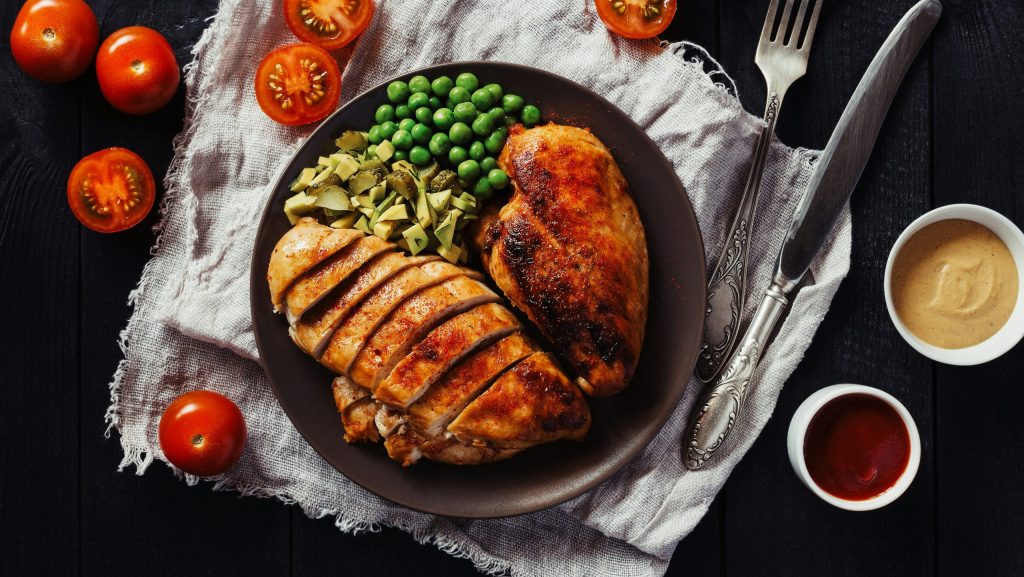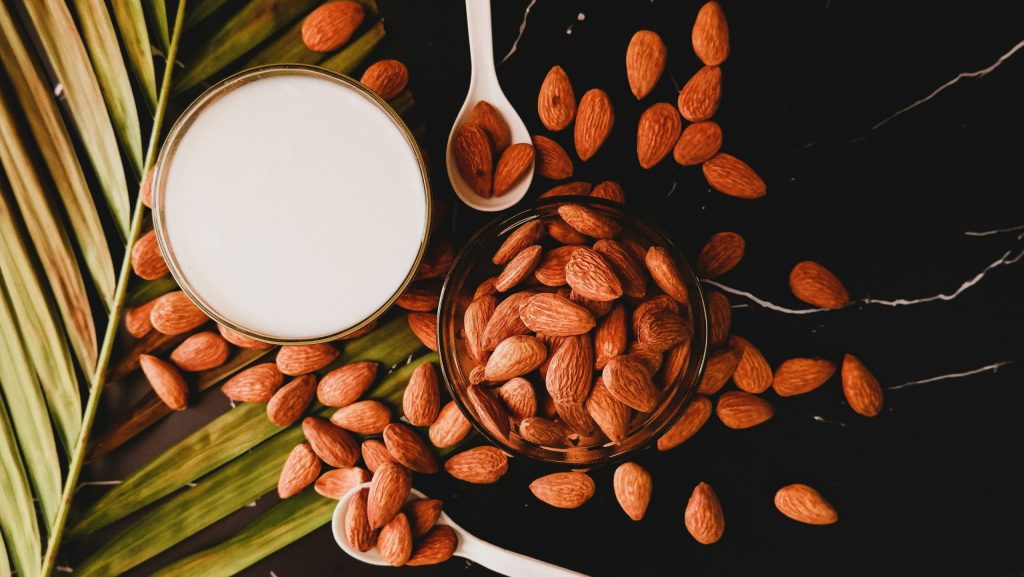Starting a fitness regimen is crucial for health improvement, but achieving goals is challenging without proper nutrition. Fitness0.com’s meal planning guide provides detailed advice on aligning diet with exercise, ensuring every meal contributes effectively to fitness objectives. Nutrition plays a critical role in fitness success, offering the necessary energy and nutrients for workout performance and recovery. This guide focuses on meal planning’s importance, offering practical tips for beginners, balancing macronutrients, and understanding caloric intake. By adopting effective meal planning strategies, individuals can meet their health and fitness goals more efficiently.
In the modern fast-paced lifestyle, balancing a healthy diet with a consistent fitness routine can seem challenging. However, the integration of a well-planned diet is essential for maximizing fitness results. Meal planning for fitness is a personalized process that requires an understanding of individual health goals and dietary needs. This guide aims to simplify meal planning, providing easy meal prep ideas, nutrition tips for beginners, and strategies to make meal planning an integral part of a healthy lifestyle.
The 5 Main Topics Highlighted:
- Introduction to Meal Planning: Understand the importance of meal planning in achieving fitness goals.
- Creating Your Fitness Meal Plan: Learn to customize a meal plan to support your fitness objectives.
- Meal Prep Essentials for Beginners: Discover basic strategies and tools for efficient meal preparation.
- Healthy Eating Habits: Develop habits that improve overall health and complement fitness efforts.
- Meal Planning Success Stories: Gain inspiration from individuals who have successfully incorporated meal planning into their fitness routines.
Proper nutrition is a cornerstone of fitness, providing the energy needed for workouts and aiding in recovery. This guide covers meal planning basics, debunking common myths, setting achievable goals, balancing macronutrients, calculating caloric needs, and offering simple meal planning techniques. By understanding and applying these strategies, individuals can significantly improve their fitness outcomes.
Interesting Fact: “Proper nutrition can increase the effectiveness of your workouts by up to 50%, turning meal planning from a chore into a strategic ally in your fitness regimen.”
Meal prep is essential for a successful fitness diet, involving tools, time-saving tips, and correct storage methods to make meal prep manageable. Additionally, adopting healthy eating habits, such as staying hydrated and diversifying one’s diet, plays a crucial role in supporting fitness goals. This guide also shares success stories to motivate beginners, showing how effective meal planning can lead to substantial health and fitness improvements.
This introduction serves as a comprehensive overview of the guide’s content, emphasizing the practical application of meal planning in achieving fitness goals. It encourages readers to explore further, offering detailed advice on making informed dietary choices that support their fitness journey.
Understanding Meal Planning
Understanding meal planning is crucial for those aiming to enhance their health and fitness levels. This section covers the essential role of nutrition in supporting exercise, corrects common misconceptions about meal planning, and offers guidance on setting realistic dietary objectives. By grasping these fundamental concepts, individuals can develop a nutrition strategy that effectively supports their fitness journey. Nutrition significantly impacts fitness outcomes by providing the necessary energy for workouts and aiding in recovery. This guide aims to demystify meal planning, making it a practical tool for health improvement.
The Role of Nutrition in Fitness
Nutrition significantly influences fitness results by supplying the energy required for physical activity and facilitating recovery post-exercise. A diet well-balanced in macronutrients is vital for any fitness regimen. Carbohydrates are essential for fueling physical activities, proteins are crucial for muscle repair and growth, and fats provide essential fatty acids and aid in vitamin absorption. It’s important to adjust the balance of these macronutrients to align with individual fitness objectives and activity levels. Highlighting the phrase “Nutrition in Fitness” emphasizes the critical importance of a thoughtfully planned diet in enhancing exercise performance and achieving fitness goals.
Interesting Fact: “Studies have shown that the timing of your meals impacts less on weight gain than the total caloric intake over the day. Nighttime eating has no significant effect on weight gain when total calories are controlled.”
Common Meal Planning Myths Debunked
Misconceptions about meal planning and nutrition often lead to confusion and ineffective diet strategies. A prevalent myth suggests that high-protein diets are necessary for anyone exercising, ignoring the need for a balanced intake of other macronutrients. Another myth is that eating late at night leads to weight gain, a claim refuted by understanding that total daily caloric intake is more critical than meal timing. Addressing these “Meal Planning Myths” provides readers with accurate information, guiding their nutritional choices based on evidence rather than misinformation.
Setting Realistic Meal Planning Goals
Creating realistic meal planning goals is fundamental for successful dietary strategies. Objectives should be specific, measurable, achievable, relevant, and time-bound (SMART). Begin by calculating your daily calorie requirements based on activity level, then structure your meals to meet these needs. Including “Meal Planning Basics” here instructs readers on the importance of devising a flexible and sustainable meal plan, emphasizing consistent, better choices over time.
- Determine Daily Caloric Needs: Calculate your needs based on activity level, age, and weight.
- Balance Macronutrients: Target a balanced intake of carbohydrates, proteins, and fats tailored to your fitness goals.
- Plan for Flexibility: Adapt your plan based on progress, personal preferences, and changes in lifestyle.
This introduction to meal planning highlights the integral role of nutrition in fitness. By correcting common myths and focusing on the importance of setting attainable goals, this guide arms beginners with the necessary knowledge to confidently start their meal planning journey. Continue exploring the next sections to deepen your understanding and effectively implement these principles in your fitness regimen. This approach ensures readers are well-equipped to integrate meal planning into their health and fitness strategy, marking the initial step towards achieving a balanced and active lifestyle.
Creating Your Fitness Meal Plan
Creating a meal plan tailored to fitness goals is essential for optimizing workout results and overall health. This subtopic provides a detailed examination of how to balance macronutrients, calculate caloric needs, and employ effective meal planning techniques. Focusing on nutrition that supports physical activity, we guide you through establishing a meal plan that efficiently fuels your body.
Balancing Macronutrients for Fitness
The cornerstone of any successful fitness meal plan lies in the appropriate balance of macronutrients: carbohydrates, proteins, and fats. Each macronutrient serves a critical role in supporting physical activity and recovery. Carbohydrates are the primary source of energy for high-intensity workouts, proteins are vital for muscle repair and growth, and fats supply long-term energy and facilitate hormone function. Tailoring these macronutrient ratios to fit your specific fitness goals and activity levels is crucial.
| Goal | Carbohydrates | Proteins | Fats |
|---|---|---|---|
| Weight Loss | Low to Moderate | High | Moderate |
| Muscle Gain | High | High | Moderate to High |
| Maintenance | Moderate | Moderate | Moderate |
Calculating Your Caloric Needs
Determining your daily caloric needs is a pivotal step in creating a fitness meal plan. This process involves calculating your basal metabolic rate (BMR), the energy expended during physical activities, and considering factors such as age, gender, and weight. The Harris-Benedict equation offers a starting point for these calculations, but it’s important to tailor these figures based on individual experiences and outcomes.
Simple Meal Planning Techniques
With a foundational understanding of macronutrient balancing and caloric needs, the next step is implementing straightforward meal planning techniques that align with your fitness goals. This involves choosing nutrient-rich foods, preparing meals in advance, and portioning meals to meet dietary requirements. Strategies such as batch cooking, using a slow cooker for convenient meal preparation, and organizing grocery lists according to your meal plan facilitate time-saving and consistency in following your nutrition goals.
Interesting Fact: “An individual’s basal metabolic rate (BMR) accounts for about 60-75% of their daily caloric expenditure, emphasizing the significance of accurately calculating caloric needs for effective fitness meal planning.”
In crafting a fitness-focused meal plan, the goal extends beyond mere calorie counting. It involves ensuring your diet provides the right balance of nutrients to support your physical activities and recovery needs. By mastering the balance of macronutrients, calculating your caloric requirements accurately, and employing efficient meal planning strategies, you can develop a nutrition plan that enhances your fitness regimen.
The next sections will further expand your knowledge on nutrition and meal planning, empowering you to achieve your health and fitness objectives. This comprehensive approach to meal planning is designed to support individuals in achieving a balanced and active lifestyle through informed dietary choices.
Meal Prep Essentials for Beginners
Embarking on meal prep is a strategic move towards achieving health and fitness goals. This segment introduces beginners to the crucial aspects of meal prep, focusing on the tools and equipment needed, time-saving strategies, and proper storage methods to ensure meal freshness. Understanding these essentials will simplify meal preparation, making it a straightforward component of your health regimen.
Tools and Equipment for Easy Meal Prep
Efficient meal prep starts with having the right set of tools and equipment. Key items include sharp knives for precise cutting, durable cutting boards, a variety of pots and pans suitable for different cooking methods, and a blender or food processor for sauces and smoothies. Additionally, investing in quality food storage containers is essential. These containers should be microwave-safe, freezer-safe, and BPA-free, ensuring they can handle different storage conditions while keeping your food safe.
Time-Saving Meal Prep Tips
Saving time is a significant benefit of meal prep. To make the most of your meal prep sessions, consider the following strategies:
- Plan Meals Ahead: Dedicate time each week to plan your meals. This approach streamlines the shopping and cooking process.
- Batch Cooking: Cook large quantities of staples, such as grains, proteins, and vegetables. These can serve as the base for various meals throughout the week.
- Pre-Cut Vegetables: Chop or slice vegetables in advance to save precious time during busy weekdays.
Adopting these “Time-Saving Meal Prep” strategies not only conserves time but also supports a consistent, healthy diet by ensuring you have nutritious meals ready when needed.
Proper Storage for Meal Longevity
Effective storage is key to maintaining the freshness and nutritional value of your prepped meals. Allow meals to cool to room temperature before refrigerating to prevent bacterial growth. Use airtight containers to keep different meal components separate, preserving their freshness and preventing flavor cross-contamination. Labeling containers with the contents and preparation date helps manage your meal inventory efficiently and ensures you consume older meals first. Implementing “Meal Prep Storage Solutions” is vital for extending the shelf life of your meals, enabling you to enjoy healthy, homemade food throughout the week.
Interesting Fact: “Using a slow cooker can reduce cooking time by up to 70%, making it an indispensable tool for efficient meal prep.”
Understanding meal prep essentials is crucial for anyone aiming to enhance their nutrition and fitness routine. Equipping yourself with the necessary tools, applying time-saving tips, and using proper storage techniques ensures your meals are nutritious and convenient. This foundational knowledge supports a sustainable and effective meal prep strategy, encouraging further exploration into nutrition and fitness meal planning. This approach to meal prep is designed to facilitate a balanced and active lifestyle, emphasizing the importance of preparedness in achieving health and fitness goals.
Healthy Eating Habits
Adopting healthy eating habits is crucial for anyone pursuing fitness and wellness goals. This subtopic focuses on essential nutritional practices, highlighting the importance of hydration, the advantages of a diverse diet, and the value of listening to your body’s cues. These principles are foundational for enhancing health and supporting fitness activities.
Importance of Hydration in Fitness
Hydration is vital for overall health and is especially critical for those engaging in physical activity. Water facilitates various bodily functions, including regulating body temperature, lubricating joints, and transporting nutrients. Adequate hydration is essential for maintaining performance levels during exercise and aiding in recovery post-workout.
Interesting Fact: “An individual can lose up to 2% of their body weight in fluid during an hour of exercise, highlighting the critical need for adequate hydration to maintain performance.”
For fitness enthusiasts, it’s recommended to drink at least 8 glasses of water daily, with additional intake before, during, and after exercise to compensate for lost fluids.
Diversifying Your Diet for Optimal Health
A varied diet ensures a comprehensive intake of essential nutrients, supporting muscle recovery, energy production, and overall well-being. Incorporating a wide range of foods from different groups provides the body with a balanced mix of vitamins, minerals, and antioxidants.
| Food Group | Examples | Nutrients Provided |
|---|---|---|
| Fruits | Apples, berries, oranges | Vitamins, fiber, antioxidants |
| Vegetables | Spinach, carrots, broccoli | Vitamins, minerals, fiber |
| Whole Grains | Quinoa, brown rice, oats | Fiber, B vitamins, minerals |
| Lean Proteins | Chicken breast, tofu, legumes | Protein, iron, B vitamins |
| Healthy Fats | Avocado, nuts, olive oil | Essential fatty acids, vitamin E |
Understanding and Listening to Your Body
Mindful eating encourages awareness of hunger and fullness cues, enabling individuals to eat in response to physical rather than emotional needs. Recognizing genuine hunger signals and choosing foods that satisfy and nourish the body can prevent overeating and support dietary goals. Listening to your body also involves adjusting your food intake based on activity levels, ensuring you consume enough calories to fuel your workouts and recover adequately.
Establishing healthy eating habits is integral to achieving and maintaining fitness goals. Prioritizing hydration, diversifying your diet, and attuning to your body’s needs are key strategies that contribute to a healthy lifestyle. By implementing these practices, individuals can enhance their nutritional intake, support their fitness endeavors, and promote overall well-being. This approach to nutrition and fitness underscores the importance of a balanced diet and hydration as pillars of health and fitness success.
Meal Planning Success Stories
Exploring real-life success stories provides valuable motivation and insights into the effectiveness of meal planning for achieving health and fitness goals. This subtopic highlights the transformative impact of disciplined meal planning, featuring anecdotes from individuals who have successfully integrated this practice into their lives, alongside practical advice from seasoned meal planners.
Real-life Meal Planning Transformations
Meal planning plays a crucial role in the journey to health and fitness, with numerous individuals attributing their success to this structured approach to nutrition. These transformations often involve significant weight loss, muscle gain, improved energy levels, and better health indicators. Such “Nutrition and Fitness Transformation” stories serve as a testament to the power of meal planning in facilitating substantial changes in physical health and lifestyle.
Interesting Fact: “Individuals who engage in meal planning are 50% more likely to achieve their fitness and health goals compared to those who do not plan their meals.”
Tips from Successful Meal Planners
Achieving meal planning success requires more than just nutritional knowledge; it demands the application of this knowledge in a practical, consistent manner. Insights from those who have mastered meal planning highlight several key strategies:
- Preparation is Key: Spend a few hours each week planning and preparing your meals to save time and reduce stress.
- Flexibility: Be prepared to adjust your meal plan based on unforeseen changes in your schedule or preferences.
- Consistency Over Perfection: It’s more important to consistently follow a good plan than to sporadically follow a perfect plan.
How to Overcome Meal Planning Challenges
Encountering challenges in meal planning is inevitable, but overcoming them is key to maintaining this healthy habit. Common issues include time constraints, dietary restrictions, and budgetary concerns. Successful meal planners share how they’ve navigated these obstacles, offering strategies such as batch cooking, utilizing cost-effective ingredients, and tailoring meals to meet specific dietary needs. Learning from their experiences enables you to effectively tackle “Overcoming Meal Planning Challenges,” ensuring meal planning remains a viable and beneficial component of your health and fitness regimen.
In conclusion, the stories and strategies shared in this subtopic illustrate the significant role meal planning plays in achieving health and fitness goals. By drawing on the experiences of those who have seen tangible results from their meal planning efforts, and by applying the practical tips they provide, you can enhance your approach to nutrition and fitness. These success stories not only demonstrate the benefits of meal planning but also offer encouragement and guidance for individuals embarking on or continuing their meal planning journey.
Conclusion: Plan & Prosper: Fitness0.com’s Meal Planning
The journey from initial meal planning to sustaining long-term fitness encompasses a comprehensive approach to health and wellness. This article has provided a thorough exploration of meal planning essentials, the critical balance of nutrition, effective meal prep strategies, the importance of healthy eating habits, and the motivational power of success stories. Each of these elements plays a vital role in enhancing both fitness routines and overall health.
Key Insights:
- Nutrition’s Foundational Role: Understanding meal planning and nutrition is crucial for optimal fitness outcomes.
- Balancing Macronutrients: Customizing macronutrient balance and caloric intake is key to achieving specific fitness objectives.
- Efficiency in Meal Prep: Employing the right tools and strategies can make healthy eating straightforward and manageable.
- The Importance of Hydration: Maintaining adequate hydration supports both fitness performance and overall health.
- Learning from Success: Success stories provide valuable lessons and encouragement for navigating meal planning effectively.
Integrating meal planning into regular workout routines, paying close attention to nutrition, and maintaining healthy habits are essential components of a successful fitness regimen. This holistic approach not only boosts physical health but also fosters a lifestyle that balances fitness with overall well-being. The insights shared throughout this article—from the basics of meal planning to motivational success stories—highlight a path to fitness that is rich with opportunities for improvement and transformation. By embracing these strategies and applying them to your daily life, you can experience the significant benefits that come from a thoughtful approach to meal planning and fitness.
“Start today by integrating the insights and strategies discussed, and take the first step towards achieving your health and fitness goals.”
Implementing the strategies discussed will not only support your fitness endeavors but also promote a sustainable and healthy lifestyle. As you embark on this journey, remember that the key to success lies in consistency, adaptability, and a commitment to your health goals. Let the transformative power of meal planning inspire you to achieve and surpass your fitness aspirations.





